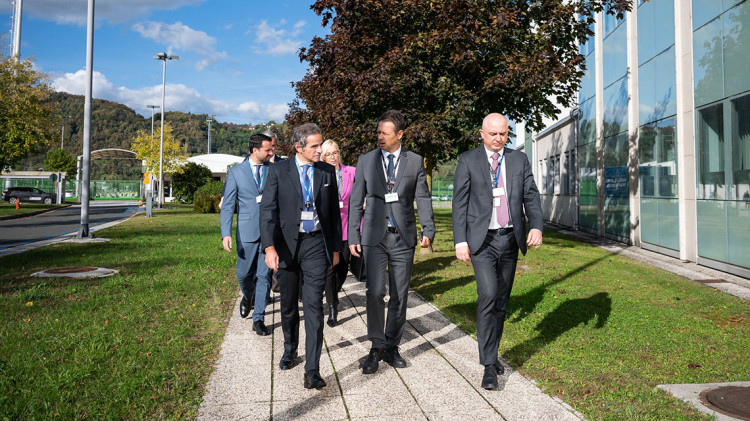The IAEA Director General has engaged with Slovenian leaders and civil society today, in the lead up to a key referendum on expanding the country’s nuclear power programme.
Rafael Mariano Grossi spoke at a forum on nuclear energy chaired by Prime Minister Robert Golob and attended by politicians, industry, energy experts and media at the Presidential Palace in Ljubljana.
In this opening address to the forum, Mr Grossi said: “Slovenia has a fine tradition of nuclear operation. You have sophisticated technology and know-how, giving you a great advantage for future plans.”
Slovenia already has one nuclear power reactor in operation with a total net capacity of 688 MWe, which produces almost 37 per cent of the electricity for the country. Krško Nuclear Power Plant - which Mr Grossi also visited today - started commercial operation in 1983 and received approval to extend its lifetime from 40 to 60 years in 2023.







